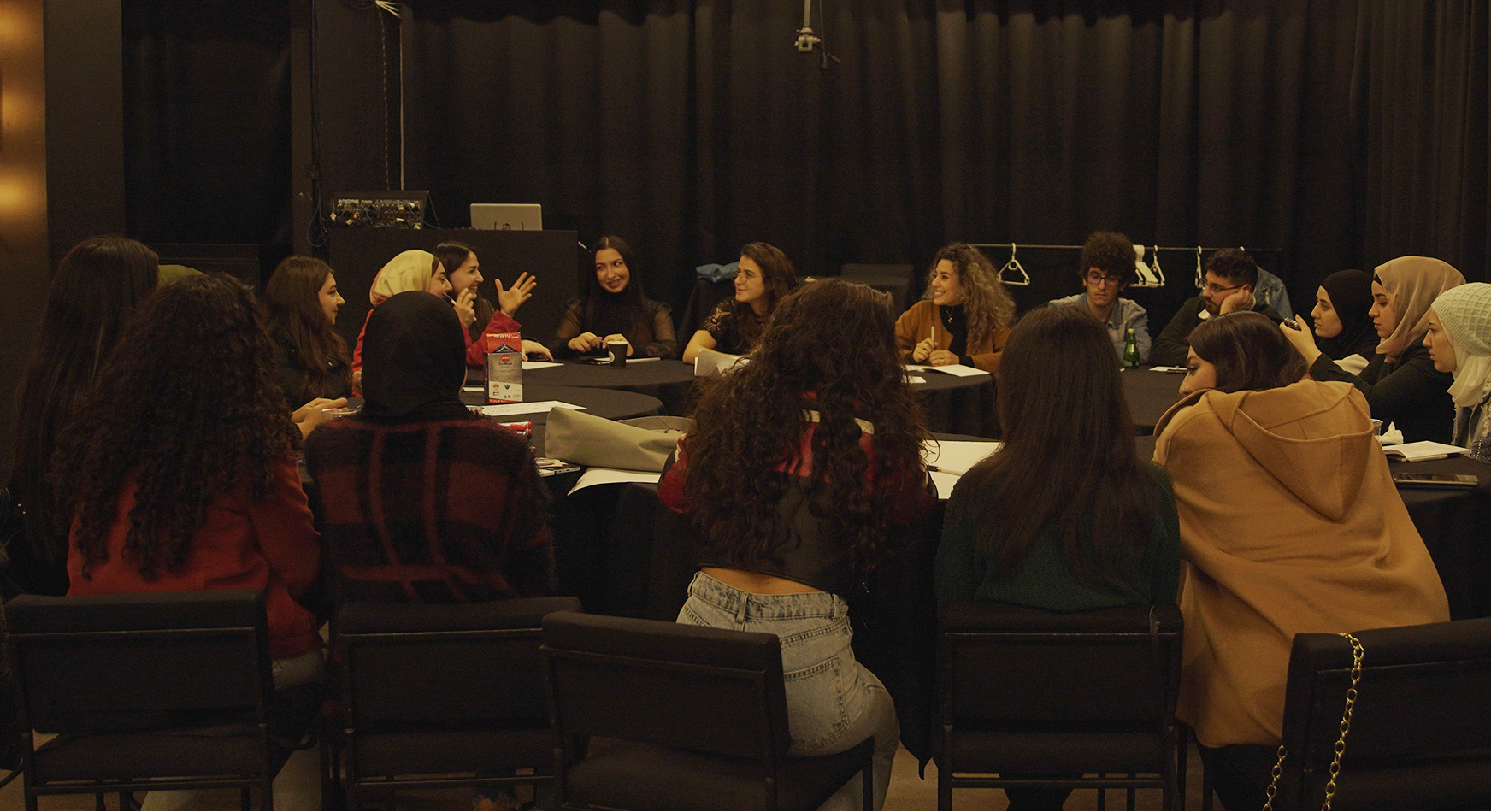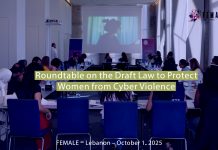Fe-Male’s Open Feminist Networking Day brings activism’s concerns, priorities, and solutions to the forefront
In an effort to bring to the fore the concerns and demands of women and marginalized groups living in Lebanon and within its continuous work on expanding and strengthening the grassroot feminist movement, Fe-Male organised an open feminist networking day on Saturday, December 3rd, at KED Karantina.
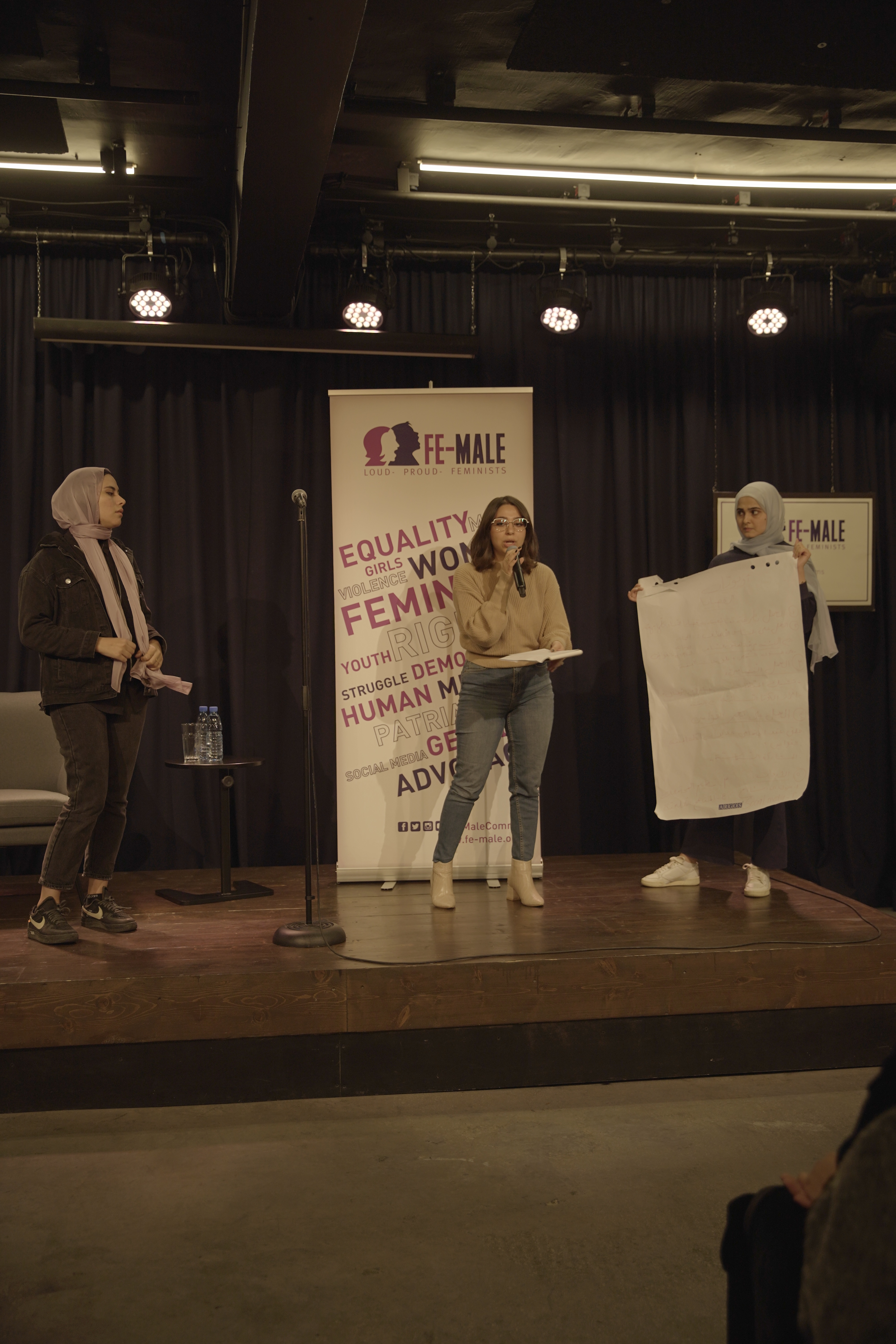 During the event, participants were split into three smaller groups that were led by facilitators. One group talked about the challenges of activism and feminist movement today; another talked about priorities; and the last group talked about possible solutions and future action plans.
During the event, participants were split into three smaller groups that were led by facilitators. One group talked about the challenges of activism and feminist movement today; another talked about priorities; and the last group talked about possible solutions and future action plans.
Activists and feminists from different backgrounds came together for the joint action to get to know each other, exchange ideas, and network further.
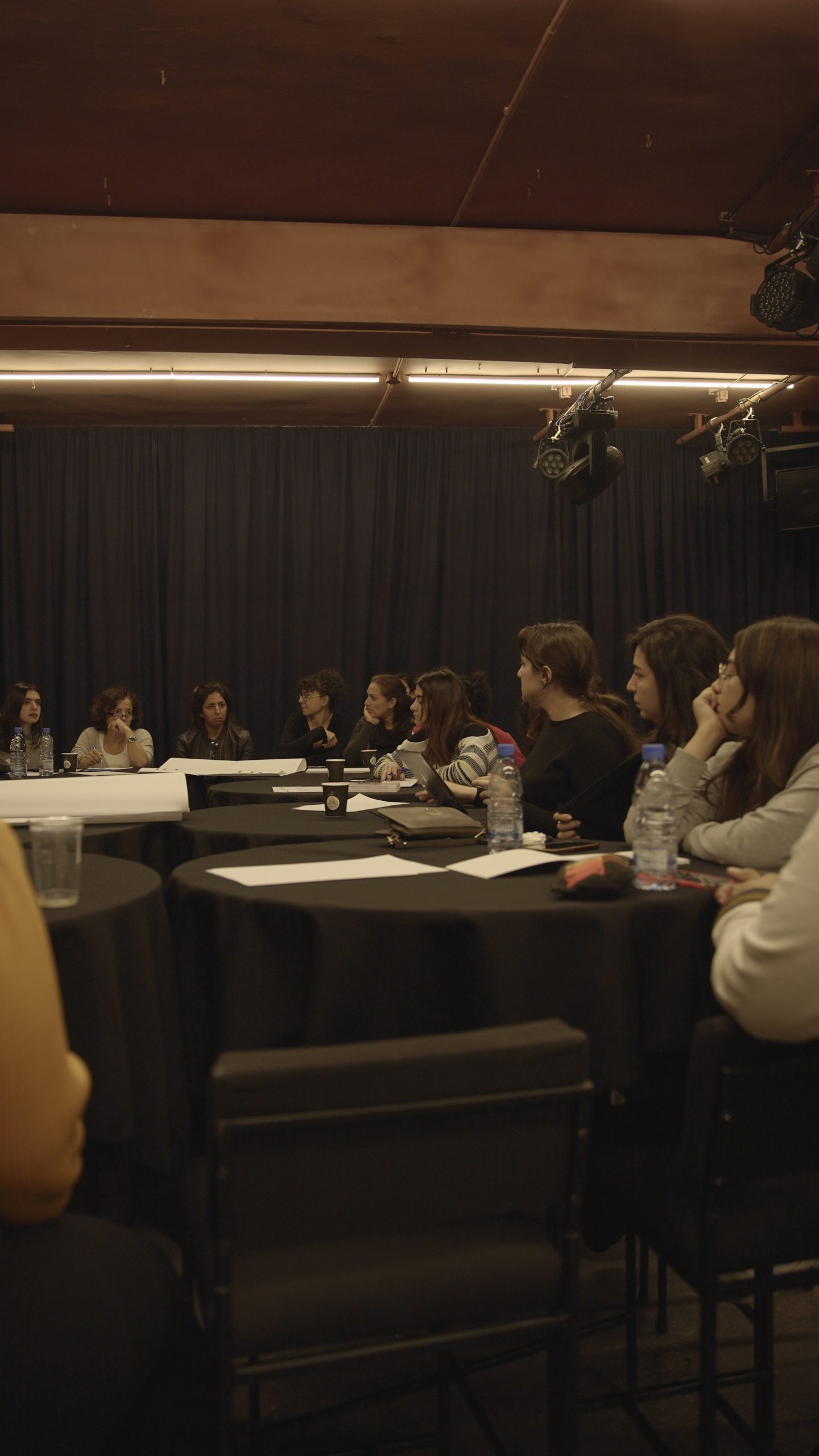 The participants were greeted by an opening note from Hayat Mirshad, co-founder and executive director of Fe-Male. Mirshad was keen on reminding the participants that this event is for networking and the building of partnerships and alliances as a powerful means to strengthen the discourse and voice and create a balance of power in favour of women.
The participants were greeted by an opening note from Hayat Mirshad, co-founder and executive director of Fe-Male. Mirshad was keen on reminding the participants that this event is for networking and the building of partnerships and alliances as a powerful means to strengthen the discourse and voice and create a balance of power in favour of women.
“This event is a turning point for making connections with other women’s rights lobby and advocacy groups, women’s grassroots NGOs, women activists, community leaders, and institutional actors.” Mirshad said while explaining that common involvement in networking from different backgrounds provides opportunities to unite for joint action and to raise women’s voices at a national level.
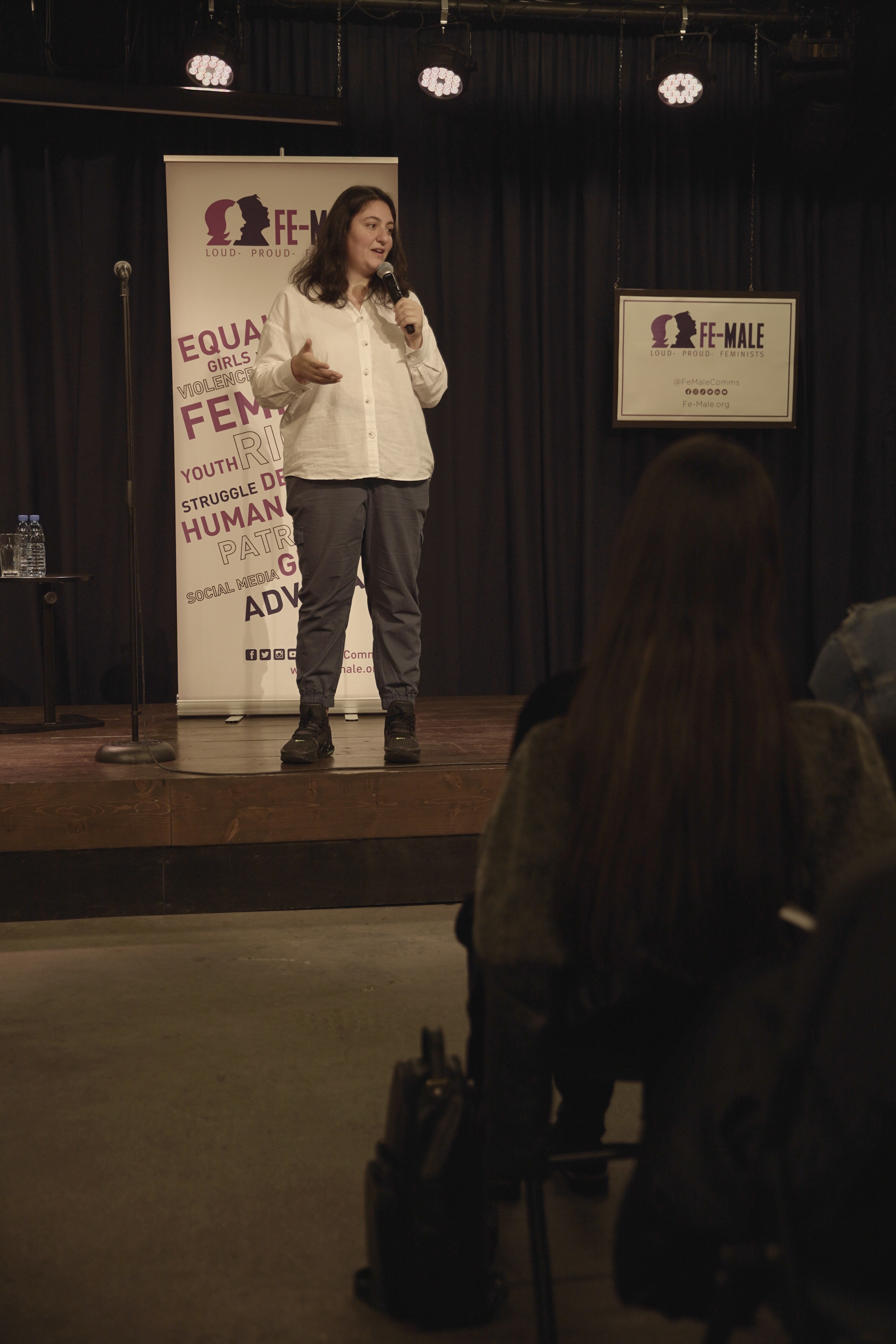 Roua Dandachi, one of the facilitators who was working with the participants, is a feminist activist and trainer who is experienced in working in the humanitarian and women’s rights fields.
Roua Dandachi, one of the facilitators who was working with the participants, is a feminist activist and trainer who is experienced in working in the humanitarian and women’s rights fields.
“I am happy to see that participants are giving diverse ideas and are coming from different expertise; some of them work on the ground with a lot of women, and some of them follow up with organisations and have all the theoretical knowledge,” she said. “This will be really helpful in pointing out all the different challenges women are facing.”
Journalist Maria Mansour said that she was happy to be among the participants, especially as this can be a window for her to learn more from feminists and activists on the ground about the actual challenges facing women and girls in Lebanon.
For years, women and girls living in Lebanon have witnessed broader trends of increasing authoritarianism, political polarization, shrinking space for civil society, minority persecution, and rising inequality. International human rights frameworks that aren’t being followed as well as resolutions for gender equality that are being pushed back have made things even more divided.
 What has become clear in light of such trends is that the major challenges of our time cannot be addressed by “business as usual” policies or frameworks that continue to prioritise power and dominance.
What has become clear in light of such trends is that the major challenges of our time cannot be addressed by “business as usual” policies or frameworks that continue to prioritise power and dominance.
Only new approaches, perspectives, and rebalanced power dynamics can achieve justice, equality, and sustainable peace.
In light of this conclusion, the Open Feminist Working Day took place.
Building on the discussion, the three groups held:
The challenges facing feminist movements in Lebanon include three main parts: financial, political, and social barriers.
The financial barrier includes transportation fees for activists and women who want to participate but are unable to cover the fees to reach the spot where the movement is taking place, especially if the protest is in the city of Beirut and she lives in the village.
Another costly challenge is that many protesters might have to take time off work to attend. Even for weekend protests, valuable shift and weekend workers may face conflicts with job demands.
Digging into the political barrier, the group concerned about the challenges said that the lack of representation of women in the political sphere, including government and parliaments, could stand as a demotivation for many women who want to protest.
The absence of a law protecting feminist activists and protestors has also stood as a barrier to many women who are afraid of brutal and violent reactions happening on the ground.
Family constraints, men’s abuse, and threats to women not to join feminist spaces and activism are all examples of social barriers.
On this spectrum, a discussion between the participants emerged on traditional versus modern activism. According to them, traditional movements had difficulties recruiting, organizing, and retaining participants, which led to only the largest and most well-supported movements thriving, and making an impact could take years.
Today’s world of digital activism is broad-reaching, impactful, and immediate compared to traditional activism.
Inclusion of women from different parts of Lebanon, women with disabilities, and refugees was a topic that was talked about a lot.
On the list of movements’ priorities, the safety of activists, their awareness, and their motivation to voice and spread their concerns were discussed.
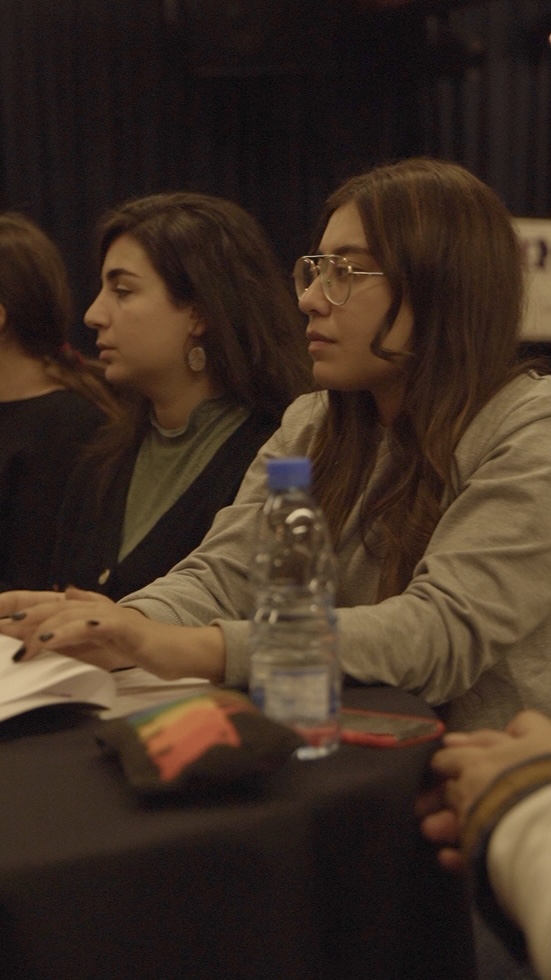 Towards the end of the event, a wrap-up of the solutions to the mentioned challenges was included.
Towards the end of the event, a wrap-up of the solutions to the mentioned challenges was included.
The solutions included a diverse list focusing on specific issues, including communication challenges. For instance, participants suggested the idea of a unified platform for feminist activists to address any concern or challenge they are facing.
On a legal level, a method of legally protecting protestors and activists by outlining their rights and emphasising their safety.
 On a financial level, a budget set for transportation or a specific transportation plan could help many women feel more at ease about accessing the protests and activities and being part of them.
On a financial level, a budget set for transportation or a specific transportation plan could help many women feel more at ease about accessing the protests and activities and being part of them.
Another point that was suggested and pushed for was mobilising comminities; many participants believe that the more inclusive the movement is, the more women will feel safe, strong, and capable of and confidently voicing their concerns on the ground.
Setting up a communication list that includes all media contacts between active members of associations, entities, or people is a helpful channel, according to participants.
One other idea was to hold regular meetings to talk about specific problems and share experiences, activities, discussions, and news.
On communication between regions, a helpful idea that was raised was setting up special committees for each region, with a coordinating committee that includes representatives of the region.
View this post on Instagram


